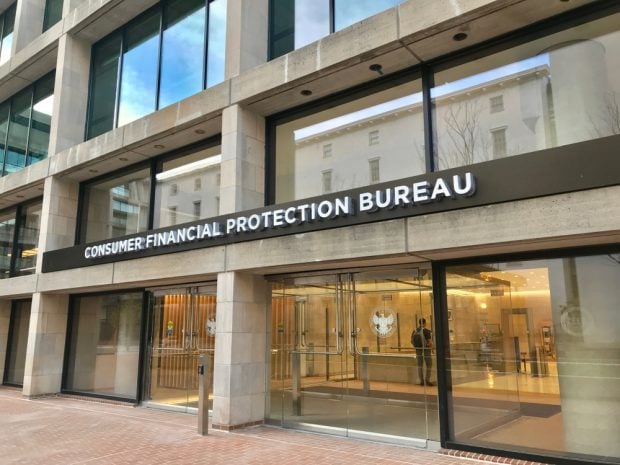 CFPB headquarters in Washington, D.C. (Source: Shutterstock)
CFPB headquarters in Washington, D.C. (Source: Shutterstock)
The CFPB's effort to better define "abusive" is only the first step in bringing clarity to the issue, credit union trade groups said, but consumer groups warned that the guidance will hamper future supervision and enforcement efforts.
The agency on Friday issued guidance to try to define how it will interpret "abusive," which is not generally defined in federal law.
Recommended For You
The Dodd-Frank Act gave the agency the power to take action in cases of "Unfair, Deceptive or Abusive Acts or Practices." The agency has said while federal law and legal precedents show how unfair or deceptive acts are defined, the same is not true for abusive facts.
"This uncertainty creates challenges for covered persons in complying with the law and may impede or deter the provision of otherwise lawful financial products or services that could be beneficial to consumers," the agency said in outlining the guidance.
The agency said it will use three principles in the enforcement of abusive acts or practices. The agency plans to:
- Challenge conduct as abusive only when the harm to consumers outweighs the benefits.
- No longer use the same facts to charge a company with abusive and another one of the standards.
- Seek monetary relief for abusiveness only when there has been the lack of a good-faith effort to comply with the law. However, the bureau will continue to seek restitution for injured consumers regardless of whether a company acting in good faith and bad faith.
"I am committed to ensuring we have clear rules of the road and fostering a culture of compliance – a key element in preventing consumer harm," CFPB Director Kathy Kraninger said. "We've developed a policy that provides a solid framework to prevent consumer harm while promoting the clarity needed to foster consumer beneficial products as well as compliance in the marketplace, now and in the future."
The policy statement also leaves open the possibility that the agency might issue rules governing abusive behavior sometime in the future.
Some future guidance may be needed, credit union trade groups said.
"While we will continue working with the CFPB on this, and other issues, in an effort to provide more guidance for credit unions, we do not think the policy statement will practically change the status quo in the immediate future," Carrie Hunt, NAFCU's EVP of government affairs and general counsel, said.
"The CFPB's increased attention on defining 'abusiveness' signals a recognition that significant challenges exist with a 'I know it when I see it' approach," Alexander Monterrubio, CUNA's senior director of advocacy and counsel, said. "We are supportive of the Bureau's efforts to develop a clearer standard but there is more work to be done on this issue."
Consumer groups panned the guidance.
"The CFPB's decision to hamstring its pursuit of abusive conduct is deeply disturbing," Linda Jun, senior policy counsel at Americans for Financial Reform Education Fund, said. "Congress defined 'abusive' and specifically gave the CFPB flexibility to enforce it because scammers are creative in the ways that they abuse consumers."
"Companies that abuse consumers do not limit the predatory tactics they use and the CFPB should not adopt self-imposed restraints on the authority Congress gave it to protect consumers," Lauren Saunders, associate director of the National Consumer Law Center, said.
© 2025 ALM Global, LLC, All Rights Reserved. Request academic re-use from www.copyright.com. All other uses, submit a request to [email protected]. For more information visit Asset & Logo Licensing.






